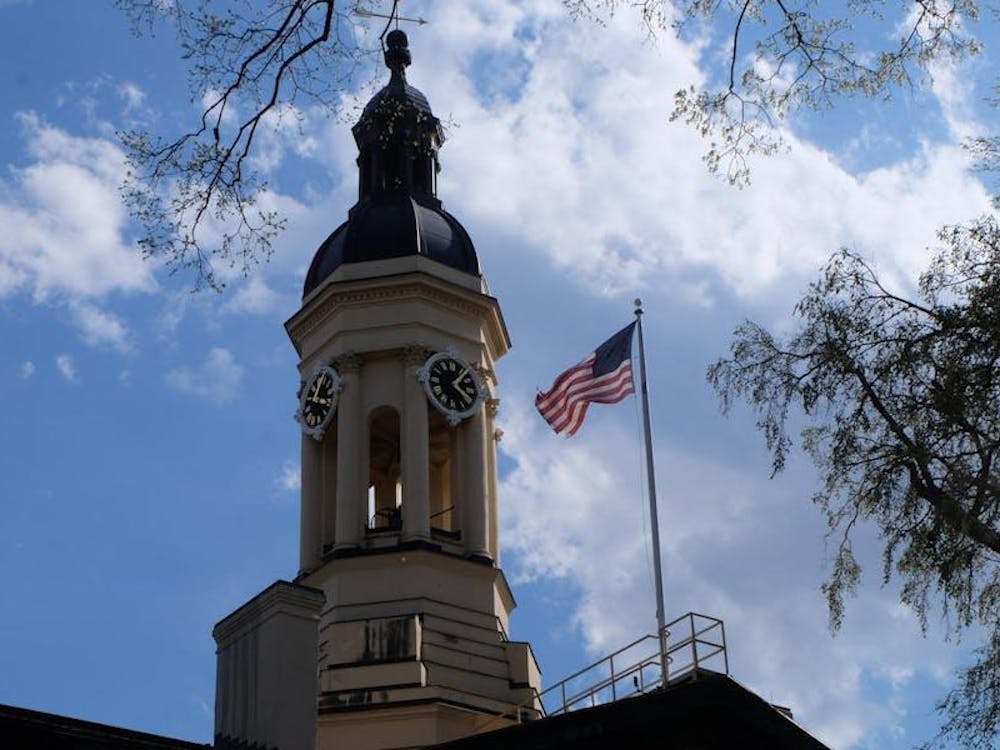Fourteen delegates from Peking and Tsinghua universities visited Princeton during the past three days in an effort to facilitate an educational exchange between the Chinese students and Princetonians in preparation for the Beijing Olympics.
The program is organized by IMUSE, short for “Initiating mutual understanding through student exchange,” and included lectures and discussions that connected students from the two most renowned universities in China and elite North-American colleges.Yu Yi, a student from Peking, said that he doubts the program will have a direct impact on China or American perceptions of China. He added, however, “I think it’s a great chance to see all of these prestigious American universities.”Political horizonAt a panel discussion on democratic change in China held on Tuesday, one of the students from Peking stressed the role of differences between American and Chinese culture in shaping their politics.“It is important to understand the huge role that Confucianism has played in [the] political system of China,” he said, explaining that Chinese people operate under the expectation of respect and obedience to superiors. Unlike in the United States, “wanting to be free” is not a central idea, he said.Mayling Birney, a Wilson-Cotsen fellow and a lecturer in the Wilson School, noted that it “is a fallacy that the quality of people is not high enough to have elections,” adding that higher government officials need to learn how to work with the people.Both Birney and the student agreed that the emergence of elections in villages is a positive step. “It is my belief that the citizens will embrace democracy once they are well educated,” the student added.Lynn White, a professor in the Wilson School who specializes in China, was more critical. The Chinese government needs to make more information public and to give more respect to reporters and lawyers, he said, adding that the student panelists were “Beijing intellectuals” who should not be so quick to look down on less educated people in China.Olympic plansJicheng Xu, deputy director of media operations for the 2008 Beijing Olympics, spoke at yesterday’s featured event.“We’re part of something very big,” Xu said. “I just hope everyone sitting here can watch and support the Olympic Games, which may be the biggest in history.”Xu noted that the Beijing Olympics has a record number of sponsors and will host more than 40,000 reporters. The tickets are the cheapest ever for the Olympics and will be distributed via lottery, Xu said, adding that demand for tickets is so high that only one out of 21 will be able to attend.Xu also emphasized that the purpose of the Olympics is to bring together different cultures and nations. “The beauty of the Olympics is that it puts all the cultures together like a garden with beautiful flowers,” he said, adding that Chinese culture will also be featured prominently.Turning greenTwo dinner discussions followed, one concerning preparation for the Olympics and one focusing on environmental problems in China.Though China has frequently been cited as a heavy polluter of the environment, the Beijing Games will be the most environmentally friendly in history, Xu said in the earlier speech, explaining that the facilities maximized the use of renewable energy.Though optimistic about China’s future as an environmentally friendly nation, Yu, the student from Peking, criticized Western media for not being realistic about China’s situation. Explaining that environmental progress is more difficult in rural areas than in cities, Yi noted, “The farmers in China simply have nothing to eat ... If it costs farmers a whole year’s worth of money to be eco-friendly, they just can’t do that.”Zhao Qi, also from Peking, criticized the attitude that China should be held to the same environmental standards as the West. “We have maximized protection of the environment given our fast economic development,” Qi said, adding that Western countries industrialized first without regard for environmental issues.
ADVERTISEMENT
ADVERTISEMENT







